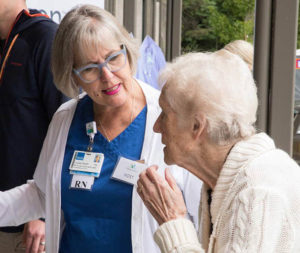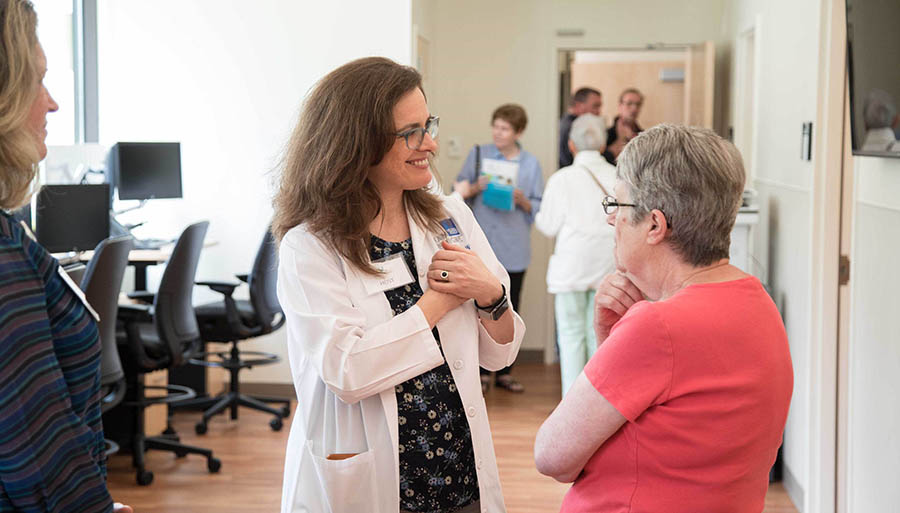Every year, 10,000 Bainbridge Islanders visit Virginia Mason Franciscan Health. To keep these patients well cared for and happy requires a workforce that is also well cared for and happy. But without much affordable housing on the island, it can be difficult to retain the workforce essential to maintaining the health of the community.
Somer Shields is director of ambulatory services at Virginia Mason Franciscan Health (VMFH). She is responsible for operational and strategic oversight of the VMFH Bainbridge Island Regional Medical Center, where there are over 15 primary care and specialty service lines and a full suite of ancillary services. Here she talks about how the lack of affordable housing makes it difficult to sustain the team of staff needed to deliver the “high-touch service and person-to-person care” necessary for maintaining the health of the community.
How long has Virginia Mason been on Bainbridge?
The original Winslow clinic was opened in 1945 and merged into Virginia Mason in 1993.
How many islanders use your services?
Close to 10,000 Bainbridge Island residents see us for one or more patient visits each year.
How many employees do you have? How many live on and off the island?
Approximately 80 regular staff, of which 61% live off island. Of the 39% that live on island, 71% are professional staff (RN’s, physicians, advanced practitioners).
 Why is it important for the community to have a local health clinic? How does having a local clinic affect health outcomes?
Why is it important for the community to have a local health clinic? How does having a local clinic affect health outcomes?
Healthcare jobs are incredibly competitive everywhere, with far more job openings than the market can supply. The Seattle area is an especially tight job market across all industries, and the cost of housing is a primary factor. In recent years, proximity to work has become a major consideration for employees who value work-life balance, and they have many options when looking for jobs in healthcare.
In order to stay competitive, we have to offer more incentives along with better pay and benefits, and this puts pressure on our system as we work hard to run a lean, financially responsible organization. We’ve made some incredible strides in pivoting to telehealth over the past year, but the majority of our work remains high-touch service and person-to-person care. Not having the team members we need to provide this service is a top concern for our leadership. When comparing our applicant pool to other regional medical centers in our system, the jobs take longer to fill, and we have fewer candidates to choose from. Having unfilled positions means we cannot grow as quickly as we’d like and cannot bring new services to the island that would benefit our patients and community, and it is a top factor in staff retention and burnout. We know that affordable housing is essential to the future of our workforce.
What do you like best about your job?
Working for an organization that is internationally known for its contributions around innovation and quality and being able to participate in transformative work.
